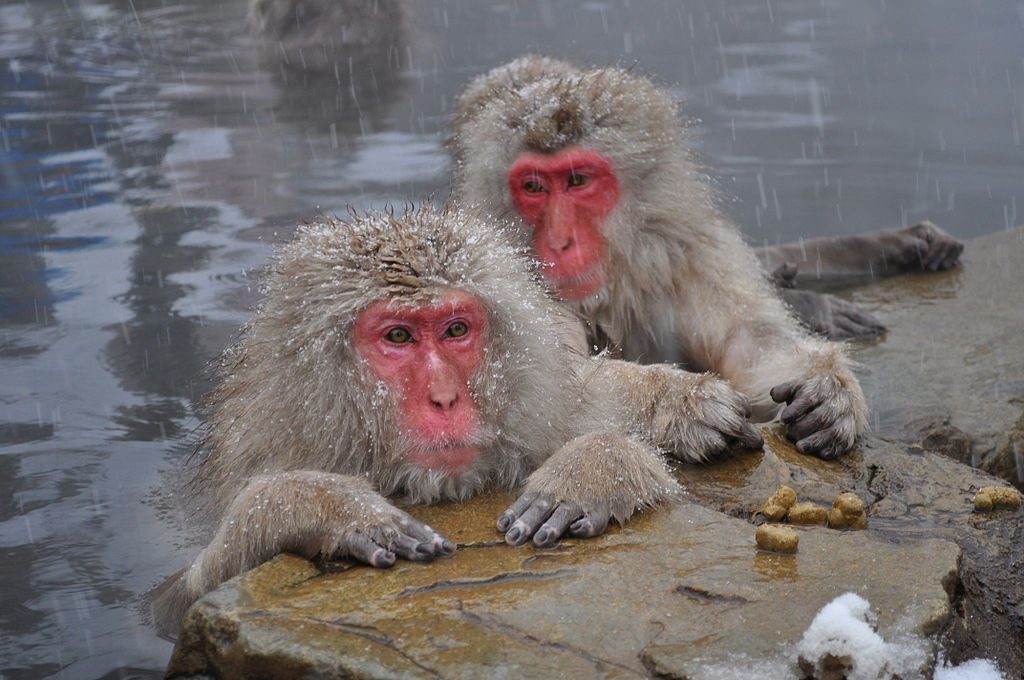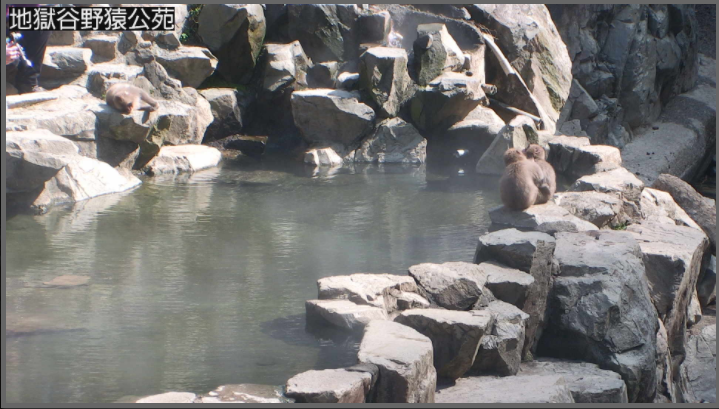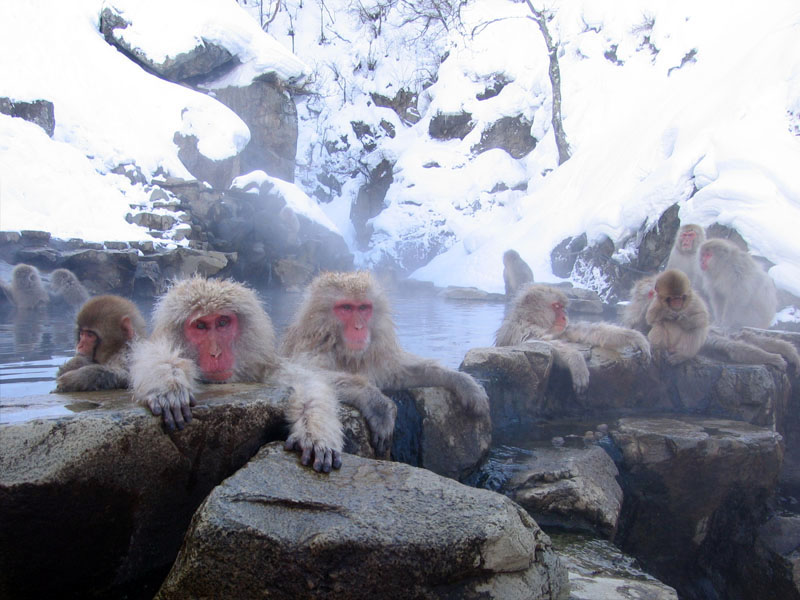As an international student from Japan, but was raised in the Philippines, I was clueless on a lot of wild animal-related topic. Most of the animals I knew where the common pet animals until I moved here to Canada in 2008. Shortly after a few years, I started to learn, little by little, on what Canadian wildlife is, but now that I’m a little bit older, I want to explore what kind of wildlife do we have in my home country. So of course, I am going to start with an animal that is genetically related to us humans.
Japanese snow monkeys (Macaca fuscata) are native to Japan. They are called snow monkeys because they are usually found in the colder regions of the country, where heavy snowfalls are common. They are omnivores, mostly like vegetarians that feed on fruits, seeds, and vegetables, but sometimes have a cheat day and eat insects.

Yblieb (CC BY-SA 3.0)
I started typing “Japanese Snow Monkey” into google and found a video of them taking a bath in an onsen hot spring. So, I started asking why do they do this? My hypothesis was that they needed it to warm themselves up due to the colder ambient temperature because I enjoy taking a hot bath if I am cold. I found that they initially do not have an innate habit of swimming in hot water, and they started getting into the hot spring for food, but they later adapted to hot water and you can not get them out of there now during winter season, as they are comfortable in the warm environment and have nowhere to scavenge for food.
I was intrigued with theses macaques, so I looked up the live camera streaming of them in action at Jigokudani Snow Monkey Park located in Yamanouchi-machi, Nagano Prefecture, in the center of Japan’s Honshu Island. As I watched the lagging stream, I noticed that they tend to groom each other while in the hot spring. I guess they do this to keep each other clean, the groomers can get some source of nutrient from the debris it eats from the groomee, or maybe it’s just a way of communicating with others to enhance their social bond. With this running in my mind I did some research and found that they are born into different social classes, the higher your ranking the more they will get groomed and will get to eat first. The rankings are unstable and it can change depending on the alpha male and the breeding season.

Monkeys Grooming (Screenshot by Misato Kondo)
Another behavior that I noticed is that they do not seem to care about the people around them. It kind off left me wondering as to why, because most the wildlife I encounter here in Canada runs away when they know that there are humans or possible predators around them? Can this behavior be adapted from the early ages where they were fed by humans when they visited them in the park?
Japanese snow monkeys are very social animals and can adapt to cultures very easily, whether it be grooming each other, washing their food, or even taking a bath together. Watching them take baths together reminds me of the traditional onsen baths for humans, where everyone basically relaxes and bathe in the same tub naked.


Recent Comments